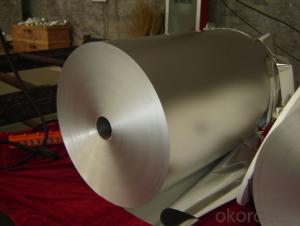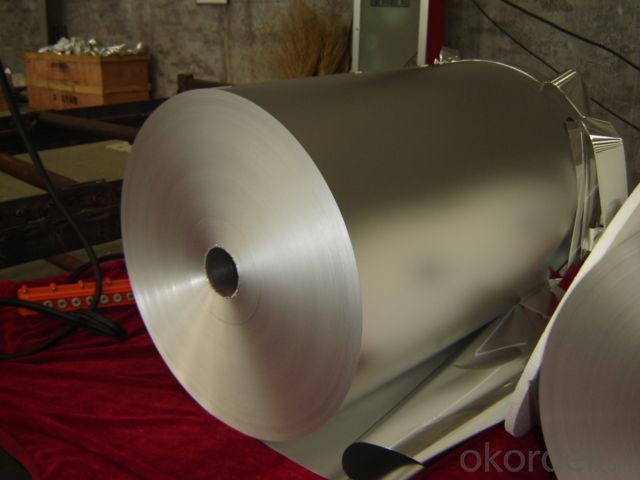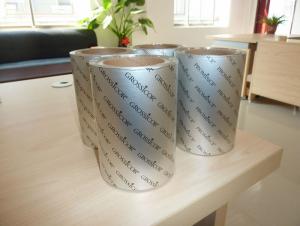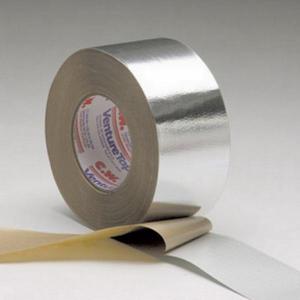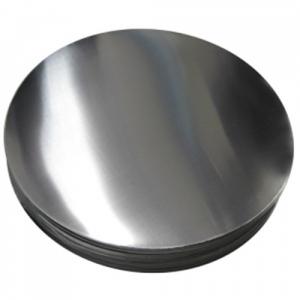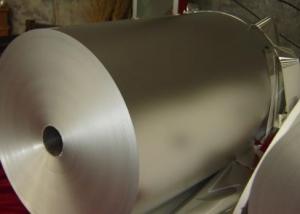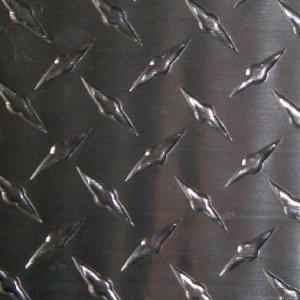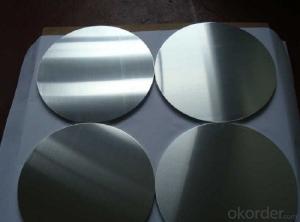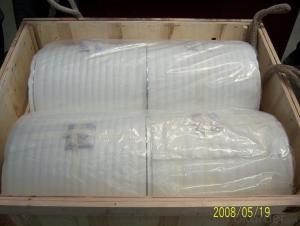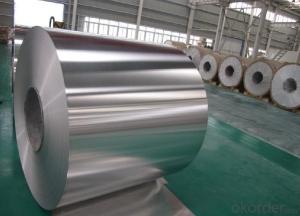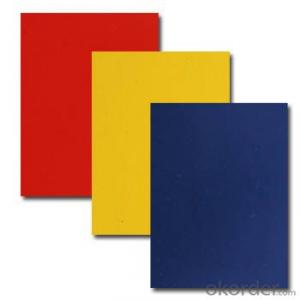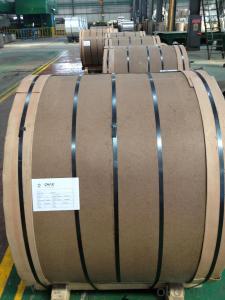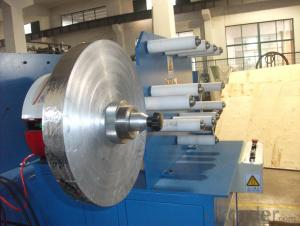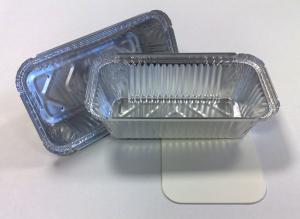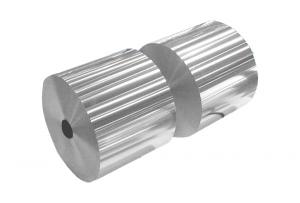Mill Finished Aluminum Alloy 8079 Foils
- Loading Port:
- Shanghai
- Payment Terms:
- TT OR LC
- Min Order Qty:
- 5 m.t.
- Supply Capability:
- 2000 m.t./month
OKorder Service Pledge
OKorder Financial Service
You Might Also Like
Specification
1. Structure of Mill Finished Alloy 8079 Aluminium Foils Description
Aluminum foil is widely used in medicine packaging, especially for Asian market. Because the good anti heat and anti wet specification, it's very good for packaging tablets and food. Noramlly for medicine packging, the quality should be higher than food packaging. For medicine packaging, we usually use direct casting quality, but for food packaging, we usually use continuous casting quality. All our aluminum foil for medicine packaging with soft temper is DC quality.
2. Specification of Mill Finished Alloy 8079 Aluminium Foils
Alloy8079
Temper Soft / hard
Process DC
Thickness12mic~30mic
Width400mm~1650mm
Core ID76mm / 152mm
Chemical Composition
Alolly 8079% MaximumSi0.05~0.13Fe0.7~1.3Cu0.05Mn0.02Mg-Cr-Ni- Zn0.1Ti0.02Zr-Others0.15
Property
Tensile strength70~100MpaElongation3.5%~7%Bursting80~270Kpa
3. Advantage of Mill Finished Alloy 8079 Aluminium Foils
We've been specialized in aluminium foil for more than ten years, we know this product very well, and we have good finacial support from government. Meanwhile, 8079 with direct casting has better elongation and bursting data.
4. Feature of Mill Finished Alloy 8079 Aluminium Foils
Surfact Quality :
Be free from Oil Stain, Dent, Inclusion, Scratches, Stain, Oxide Dicoloration, Breaks, Corrosion, Roll Marks, Dirt Streaks and other defect which will interfere with use,
Mechenical Property:
Chemical Composite and Mechanical Property
5. Certificate of Mill Finished Alloy 8079 Aluminium Foils
SGS and ROHS(if client request, paid by client), MTC(plant provided), Certificate of Origin(FORM A, FORM E, CO), Bureau Veritas and SGS (if client request, paid by client), CIQS certificate
6. Image of Mill Finished Alloy 8079 Aluminium Foils
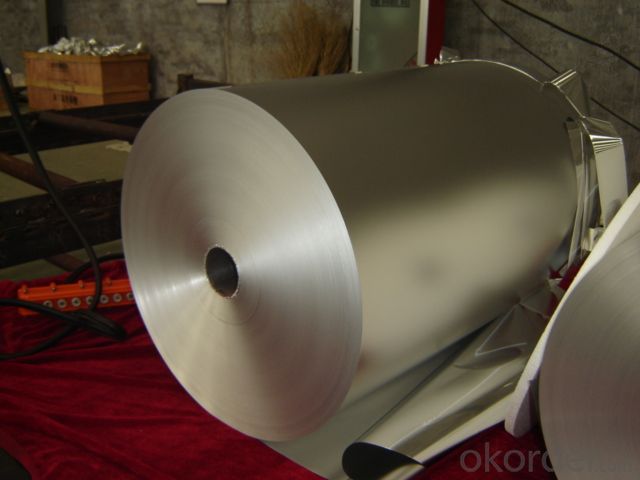
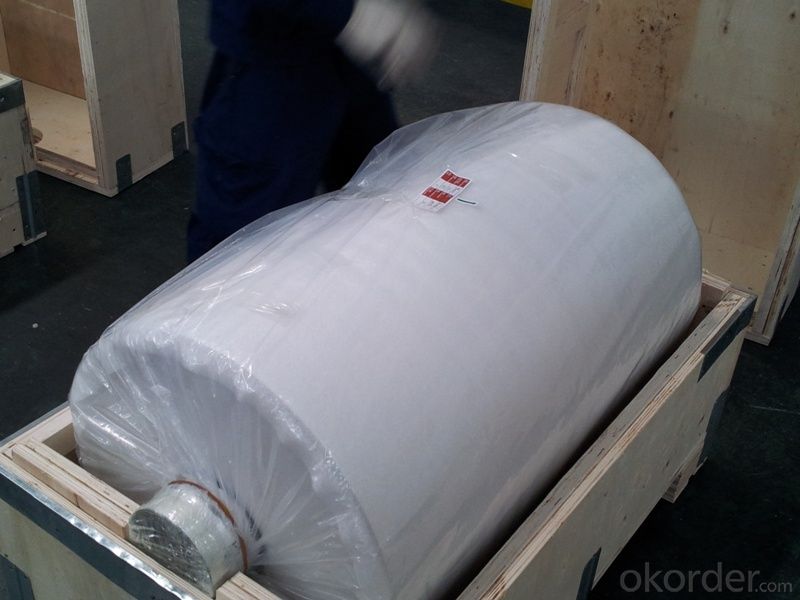
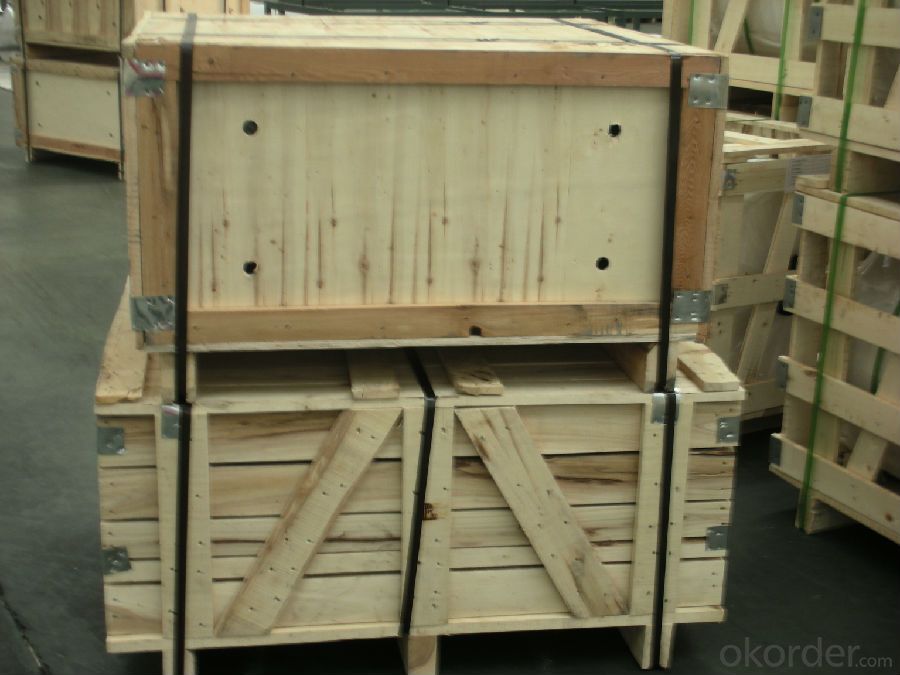
7. Package and shipping of Mill Finished Alloy 8079 Aluminium Foils
First, plastic cloth with drying agent inside; Second, Pearl Wool ; Third, wooden cases with dry agent , fumigation wooden pallets, aluminum surface could cover blue PVC film
8. FAQ
1) What is the delivery time?
Depends on actual order, around 30 to 40 days
2) What is the QC system:
We have QC staff of 20 persons and advanced equipment, each production is with MTC traced from Aluminum ingot lot.
3) What market do you mainly sell to?
Australia, America, Asia, Middle East, Western Europe, Africa etc
- Q: This question asks for recent applications of aluminum in the construction industry.
- <p>Aluminum has found new uses in construction due to its lightweight, durability, and sustainability. It's used in curtain walls, window frames, and doors for its strength and resistance to corrosion. Aluminum is also utilized in modular construction, where prefabricated components can be quickly assembled on-site. Its high thermal conductivity makes it suitable for energy-efficient building envelopes. Additionally, aluminum's recyclability and low environmental impact make it a popular choice for green buildings. New technologies have also enabled the use of aluminum in 3D-printed structures, offering innovative design possibilities.</p>
- Q: Describe the impact of silicon on the properties of aluminum alloys.
- <p>The addition of silicon to aluminum alloys significantly enhances their properties. Silicon increases the alloy's fluidity, which is beneficial for casting processes, leading to improved casting quality. It also raises the alloy's resistance to corrosion, particularly in marine environments. Furthermore, silicon additions can improve the alloy's mechanical properties, such as strength and hardness, without significantly compromising ductility. This makes the alloy more suitable for applications requiring wear resistance. However, it's important to note that excessive silicon can lead to a decrease in the alloy's toughness and increase the risk of hot cracking during casting.</p>
- Q: Is it possible to utilize aluminum as a material for automotive construction?
- <p>Yes, aluminum is commonly used in cars. It is valued for its lightweight properties, which can improve fuel efficiency and reduce emissions. Aluminum is used in various parts of a vehicle, including engine components, body panels, and suspension systems. Its high strength-to-weight ratio and resistance to corrosion make it an ideal material for automotive applications.</p>
- Q: Explain the impact of high-temperature cooking on aluminum cookware.
- <p>High-temperature cooking can have detrimental effects on aluminum cookware. When exposed to high heat, aluminum can react with acidic or alkaline foods, potentially causing the release of aluminum particles into the food. This can lead to a change in the taste and color of the food, and over time, it may also lead to the degradation of the cookware's surface, causing it to become discolored or pitted. Additionally, there are health concerns related to the ingestion of aluminum, although these are still a subject of debate among scientists. It's generally recommended to use aluminum cookware on low to medium heat to preserve both the quality of the food and the longevity of the cookware.</p>
- Q: This question asks for an explanation of the steps involved in producing aluminum.
- <p>The production process of aluminum primarily involves two stages: extraction from bauxite and refining. Initially, bauxite ore, the primary source of aluminum, is mined and then processed to remove impurities. The refined bauxite is then mixed with a hot caustic soda solution in a process called the Bayer Process, which extracts aluminum oxide (alumina). In the second stage, alumina is dissolved in molten cryolite and subjected to an electrolytic reduction process in a Hall-H茅roult cell. This involves passing an electric current through the molten mixture, causing the aluminum oxide to decompose and release pure aluminum, which collects at the bottom of the cell. The aluminum is then tapped off, cooled, and cast into various forms for further processing or use.</p>
- Q: This question asks for a list of negative aspects or drawbacks associated with the use of aluminum.
- <p>Aluminum, while widely used, has several disadvantages. It is non-magnetic and non-conductive, which limits its use in certain applications requiring these properties. Aluminum is also relatively soft and can dent or scratch easily, affecting its durability in some contexts. Additionally, its production process is energy-intensive and contributes to environmental pollution. Furthermore, aluminum can have negative health impacts if ingested in large quantities, potentially leading to neurological disorders. Lastly, aluminum's light weight can be a disadvantage in applications where greater strength or weight is required.</p>
- Q: Is it dangerous to consume food wrapped in aluminum foil due to the risk of aluminum poisoning?
- <p>There is minimal risk of aluminum poisoning from eating food wrapped in aluminum foil. Aluminum foil is designed to be food-safe and does not easily transfer aluminum to food under normal cooking conditions. However, at extremely high temperatures or when foil is used to cook acidic foods, there might be a slight increase in aluminum exposure. The body naturally excretes excess aluminum, and the small amounts typically ingested from food packaging are not considered harmful. Nonetheless, it's always a good idea to follow proper food handling and cooking practices to minimize any potential risks.</p>
- Q: This question asks for examples of how recycled aluminum can be utilized.
- <p>Recycled aluminum has numerous applications, including the manufacturing of beverage cans, automotive parts, construction materials, and electronic components. It is also used in the production of aluminum foil, packaging materials, and various household items. Recycled aluminum is valued for its durability, lightweight properties, and energy efficiency in production, making it an environmentally friendly choice for many industries.</p>
- Q: What measures should be taken to ensure safety while working with aluminum?
- <p>When working with aluminum, it's important to follow safety precautions. Always wear appropriate personal protective equipment (PPE) such as gloves, safety glasses, and a dust mask to prevent inhalation of aluminum dust. Ensure good ventilation to avoid the buildup of fumes. Use proper tools and equipment to handle aluminum, as it can become sharp and cause cuts. Be cautious of the heat generated during cutting or welding, as aluminum conducts heat quickly and can cause burns. Store aluminum in a dry place to prevent it from reacting with moisture, which can cause it to corrode. Lastly, be aware of the fire hazard associated with aluminum dust and take necessary fire prevention measures.</p>
- Q: What are the various applications of aluminum in the construction industry?
- <p>Aluminum is widely used in construction due to its lightweight, durability, and resistance to corrosion. It is utilized in the manufacturing of window frames, doors, roofing, and facades for its strength and low maintenance requirements. Aluminum is also used in structural components such as beams and columns, and in the construction of bridges and high-rise buildings. Its malleability allows for easy shaping and forming, making it ideal for intricate designs. Additionally, aluminum's thermal conductivity and reflectivity make it suitable for energy-efficient construction.</p>
Send your message to us
Mill Finished Aluminum Alloy 8079 Foils
- Loading Port:
- Shanghai
- Payment Terms:
- TT OR LC
- Min Order Qty:
- 5 m.t.
- Supply Capability:
- 2000 m.t./month
OKorder Service Pledge
OKorder Financial Service
Similar products
Hot products
Hot Searches
Related keywords
